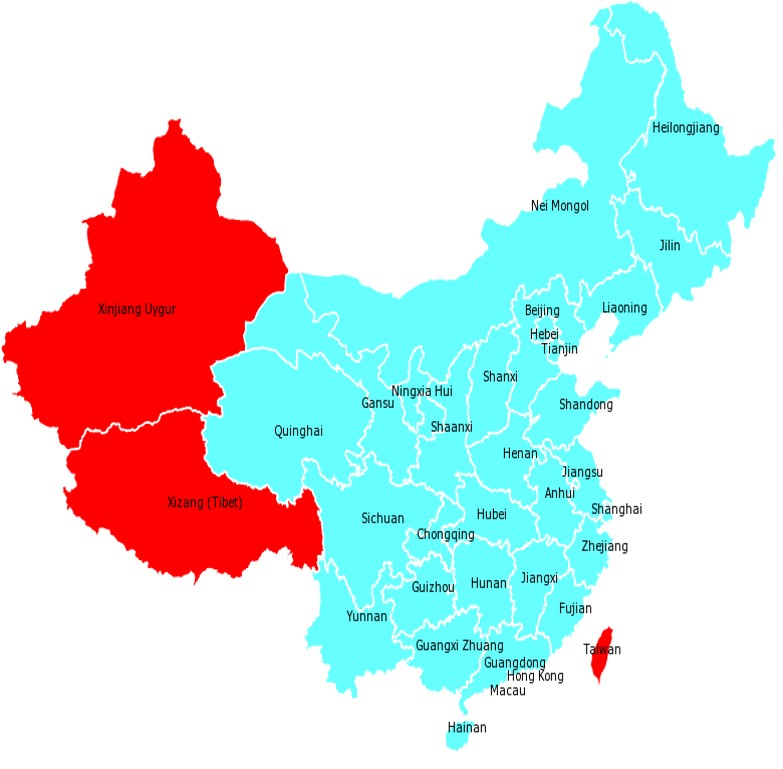Xinjiang, China—A play from the Nazi playbook or an honest effort to deal with extremism?
The Chinese government has just legalized the use of concentration camps for Uighur Muslims. The camps have been erected in Xinjiang, a western region in China. Human rights organizations report that detainees are forced to renounce their faith and swear loyalty to Chinese President Xi Jinping and the Communist Party.
A state-owned newspaper defended the camps by writing that “Peace and stability must come above all else. With this as the goal, all measures can be tried.”
Chinese officials from the Xinjiang province assert that the camps are intended to combat extremism. They describe them as “vocation training centres” where inmates go through “thought transformation” to ensure they avoid becoming radical Islamists. More specifically, inmates are taught Mandarin Chinese, Chinese legislation, and also receive vocational training. They claimed, moreover, that Uighur Muslims were going through a resettlement and re-education programs because they were “deceived by religious extremism.”
But what acts could land a person in one of these camps?
Refusing to listen to government radio or watch government TV, or preventing one’s children from receiving state education.
Although Beijing denies it, it is estimated that more than a million people are being detained in the camps. Most are there without being charged with a crime and with no hope of legal representation.
This hasn’t been the first authoritarian action to take place in Xinjiang province. The Muslim dominated region has faced numerous government crackdowns in the past decades over separatism and terrorism allegations. In a previous wave of censure, the Chinese government banned the growth of beards and the wear of veils by women. Further, parents were ordered to give their children common Chinese names.
The official title of the internment camps is “vocational skills and educational training centres.”

This is a map of the three of China’s “Five Poisons” that are geographically based. It identifies Tibet and the Uighur autonomous region, plus the island of Taiwan (Salvatore Babones, Wikimedia Commons).
Already have an account? Sign In
Two ways to continue to read this article.
Subscribe
$1.99
every 4 weeks
- Unlimited access to all articles
- Support independent journalism
- Ad-free reading experience
Subscribe Now
Recurring Monthly. Cancel Anytime.
Former inmates, however, tell a wholly different tale. They report physical and mental torture. Inmates are forced to give DNA samples for biological surveillance. The description of one who managed to escape, Omir, resembles more a Nazi concentration camp than a “vocation and educational training centre.” He told international media:
“They wouldn’t let me sleep, they would hang me up for hours and would beat me. They had thick wooden and rubber batons, whips made from twisted wire, needles to pierce the skin, pliers for pulling out the nails. All these tools were displayed on the table in front of me, ready to use at any time. And I could hear other people screaming as well.”
To avoid any charges of authoritarianism, Beijing is adroitly manipulating the definition of extremism. By giving a broad and vague definition, the Chinese government can even obstruct marriages.
The Uighurs are a Muslim minority of Turkic descent. They mostly reside in the province of Xinjiang, accounting for 45 percent of the region’s population. Successive Chinese governments have tried to dilute the Uighurs’ ethnic composition by introducing vast numbers of Han internal emigrants (China’s ethnic majority) into their region.
Like Tibet—another site of Chinese authoritarianism, Xinjiang is an autonomous region.
Is this a country that seeks to provide the world with moral leadership? Its actions are an ugly echo of Nazi Germany’s justifications for its inhuman treatment of prisoners and genocide of Jews and other racial and social minorities.











COMMENTS